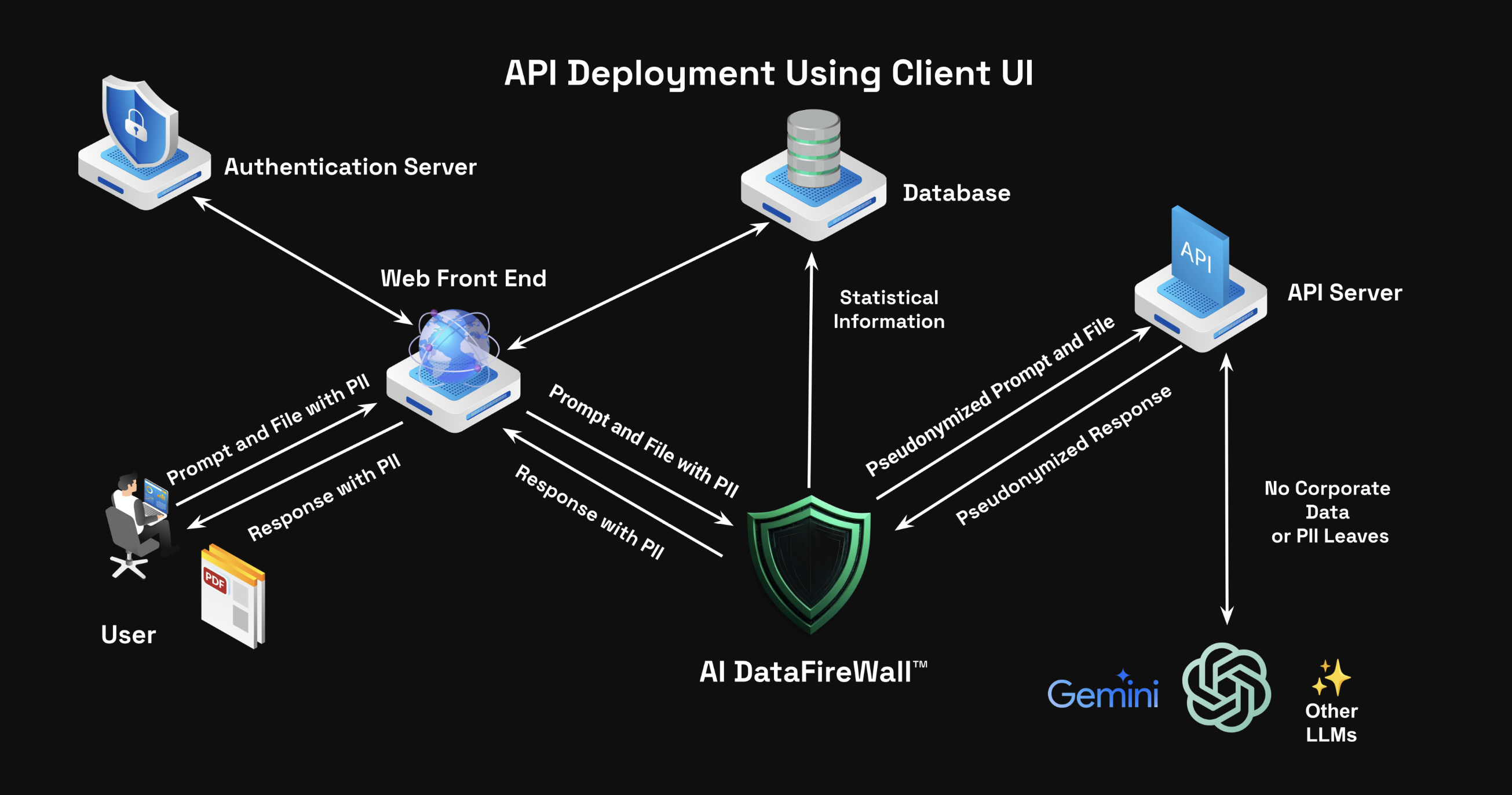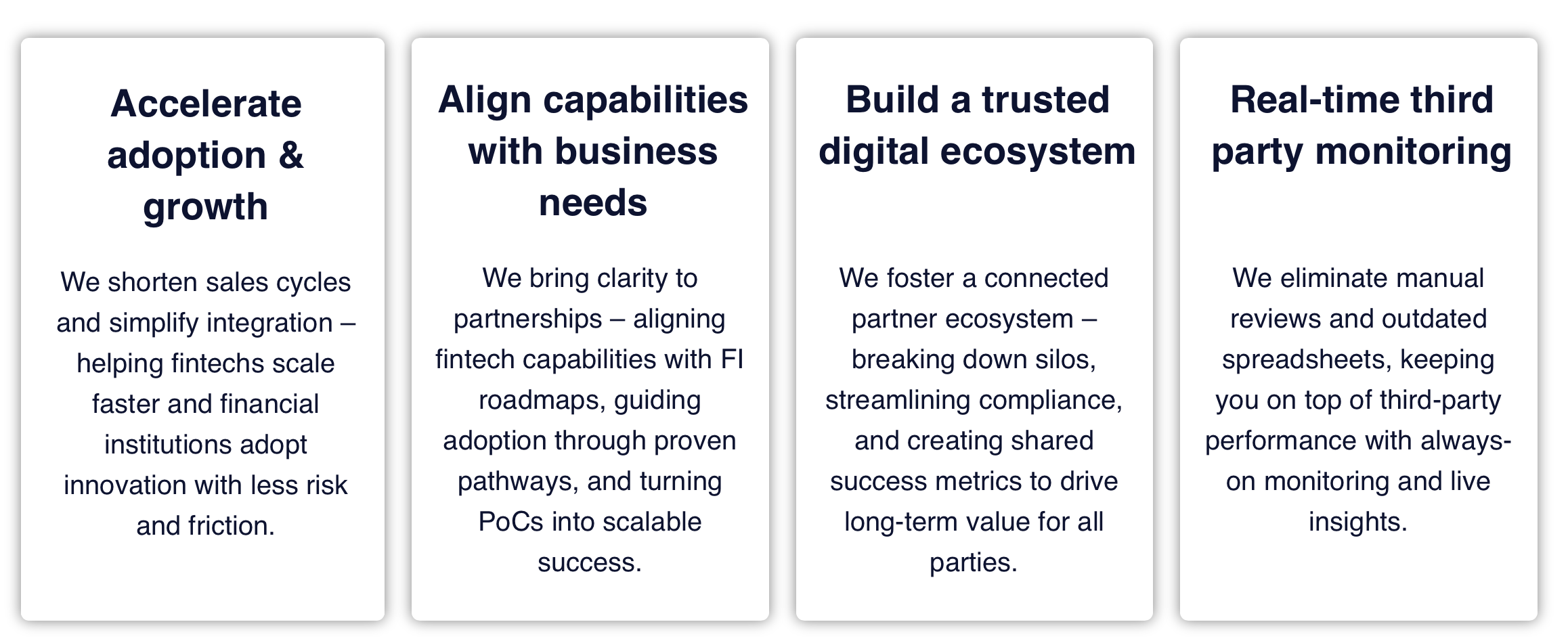
This month we want to talk about two initiatives that we're really excited about; AI Firewalls and Fintech Marketplace. These two developments are proving really quite interesting for our clients and so we'd like to share with you some of the debates we've been having and give you the opportunity to get involved in the conversation.
We've also got some really exciting content on the first employee-less bank that uses AI to drive banking. We ponder what the (very) near future may hold and ask - should we be concerned?
And finally, we give a run down of the various technology developments that we're seeing not only in the Gulf region, but more wider afield.
In an age where artificial intelligence is remaking every corner of society, it was only a matter of time before the most traditional of institutions — the bank— would undergo a transformation so radical that it would be almost unrecognisable. Imagine a bank with no tellers, no advisors, no back-office clerks, and no call centres. A bank with no employees at all. This is not science fiction. This is the next frontier: the first employee-less bank, powered entirely by AI.
We explore this future here....
At its core, an employeeless bank is a fully autonomous financial institution where every function—customer service, compliance, credit decisioning, fraud detection, product development, and portfolio management—is handled by artificial intelligence, machine learning, and robotic process automation. The bank is not just digital; it’s self-operating, self-optimising, and self-learning.
The idea isn’t to replicate existing services with AI—it’s to reimagine banking altogether, building it from the ground up around data, algorithms, and intelligent automation. Human labour, in this model, becomes almost entirely obsolete.
Customers engage with the bank via conversational AI interfaces—think hyper-personalised versions of ChatGPT embedded in apps, websites, smartwatches, and even cars. These interfaces handle everything from onboarding and identity verification to financial coaching, loan applications, and dispute resolution.
These digital assistants are emotionally intelligent, context-aware, multilingual, and continually improving based on feedback and behaviour. Your bank “knows” you—not just your balance, but your goals, anxieties, and ambitions.
The bank’s core is a cloud-native platform that integrates microservices for deposit accounts, lending, payments, compliance, and data storage. It’s elastic, self-healing, and governed by autonomous orchestration layers that balance resources and workloads in real-time.
Rules engines and machine learning models make credit decisions in milliseconds, dynamically pricing risk based on market signals, behavioural analytics, and even global events. The legacy batch processing systems of yesteryear are gone, replaced with real-time transaction and risk computation.
Compliance is enforced by AI agents that monitor activity continuously, flagging anomalies with a precision no team of auditors could match. They interpret regulatory changes, update policies automatically, and generate real-time audit trails.
Natural language processing enables AI to parse new legislation and cross-reference it with existing policies, ensuring 24/7 compliance in a multi-jurisdictional world. Know Your Customer (KYC) and Anti-Money Laundering (AML) checks are handled autonomously, using biometric data, behavioural indicators, and external verification sources.
Traditional banks react to fraud. The employeeless bank predicts and prevents it. AI models use unsupervised learning to detect subtle, emerging threats. Instead of blacklists and manual reviews, it relies on behavioural biometrics, network analysis, and intent modelling to differentiate legitimate users from bad actors in real-time.
When a threat is detected, the system doesn’t just block a transaction—it adapts its detection logic, updates its threat models, and deploys countermeasures autonomously.
Product innovation no longer depends on committees or customer surveys. Instead, AI analyses customer usage patterns, financial health, and market demand to design, test, and iterate products on the fly. Hyper-personalised savings goals, investment portfolios, and insurance bundles are dynamically generated for each user.
New products are launched and A/B tested at scale in real-time, with continuous learning loops optimising features, pricing, and marketing strategies.
There are no service desks, ticketing systems, or shift rotations. Issues are resolved automatically by intelligent agents monitoring all systems for degradation or anomalies. Failures trigger predefined remediation playbooks or generate new ones using generative AI.
Internal processes such as reconciliations, treasury operations, or liquidity monitoring are not only automated—they’re anticipatory, learning from past events to improve future performance.
The employeeless bank offers substantial advantages:
But this vision is not without its challenges—and critics.
When an algorithm denies you a mortgage or flags you for fraud, who do you appeal to? AI governance, explainability, and human oversight become paramount. The bank may be employeeless, but it cannot be accountability-less.
An AI-driven bank would be a high-value target. Attack surfaces multiply with interconnectivity. Ensuring cybersecurity and AI model integrity would require a sophisticated, adaptive defence strategy.
Many customers still value human interaction, especially in moments of crisis or complexity. Can empathy truly be digitised? Can a chatbot replace the reassurance of a seasoned advisor?
Most financial regulations were written for human-led institutions. Regulators may struggle to adapt oversight frameworks to an AI-native organisation—raising issues around licensing, responsibility, and systemic risk.
The first employeeless bank is unlikely to launch in a legacy-heavy market. Instead, expect it to emerge in a digitally progressive jurisdiction—one with a strong FinTech culture, agile regulation, and a tech-savvy population. The Gulf region, with its appetite for innovation and top-down transformation mandates, is a strong contender.
Alternatively, it may start as a product or feature within an existing neobank—say, an AI-driven savings coach or autonomous credit line—before expanding into a fully autonomous platform.
The employeeless bank will not replace all banks. But it will redefine what banking can be. It offers a model of relentless efficiency, radical personalisation, and always-on availability—one that challenges the very notion of what it means to be a financial institution.
In the same way that self-driving cars are forcing us to rethink transportation, AI-native banking will force us to rethink trust, value, and the human role in financial systems.
In time, the question won’t be “Will there be an employeeless bank?” The question will be “Why would anyone want to bank any other way?”

We have been working with our friends at contextul for a while now and we're thrilled to share that Impact Team Insiders can now gain exclusive access to the AI Firewall service as part of the Europe and Gulf regional trial.
What is it?
Its's a service that sits in-between your employee and the array of LLMs. It scans the LLM query and associated documents that are sent to it be the employee, identifies all potential cases of personal or company confidential information, replaces this data with dummy data and then send the query onward to the public LLM. When the response is received, it reverses the dummy data out and replaces it with the original data. Hence, ensuring the employee doesn't inadvertently introduce a data breach scenario..
Why use it?
LLMs are increasing in their number and the rate of introduction of new LLMs is only speeding up. The efficiency gains by adopting these tools is obvious for all to see and corporate enterprises are adopting one of possibly three treatment strategies as the world grapples with how best to use them safely.
1. Ban them completely (very safe, but denies your employees access to any potential efficiency gains)
2. Allow public access to them, but insist that the employee adheres to a privacy and usage policy (virtually impossible to govern)
3. House your own LLM within a corporate walled garden (very expensive and always out of date)


𝐀𝐈 𝐢𝐬 𝐧𝐨 𝐥𝐨𝐧𝐠𝐞𝐫 𝐚 𝐭𝐨𝐨𝐥. 𝐈𝐭'𝐬 𝐛𝐞𝐜𝐨𝐦𝐢𝐧𝐠 𝐩𝐨𝐥𝐢𝐜𝐲.Sheikh Mohammed bin Rashid has just announced a groundbreaking move:Starting in 2026, the 𝐍𝐚𝐭𝐢𝐨𝐧𝐚𝐥 𝐀𝐫𝐭𝐢𝐟𝐢𝐜𝐢𝐚𝐥 𝐈𝐧𝐭𝐞𝐥𝐥𝐢𝐠𝐞𝐧𝐜𝐞 𝐒𝐲𝐬𝐭𝐞𝐦 will become an 𝐚𝐝𝐯𝐢𝐬𝐨𝐫𝐲 𝐦𝐞𝐦𝐛𝐞𝐫 of the UAE Cabinet, the Ministerial Development Council, and all federal boards.An embedded AI system helping guide governance itself - 𝐚 𝐠𝐥𝐨𝐛𝐚𝐥 𝐟𝐢𝐫𝐬𝐭.
UAE-based artificial intelligence powerhouse G42 and Saudi Arabia’s Diriyah Company — have been named to Time magazine’s 2025 list of the 100 Most Influential Companies in the World.It marks a historic first for the UAE, with G42 becoming the nation’s inaugural entry on the prestigious global ranking.


The Technology Innovation Institute (TII),the applied research arm of the Advanced Technology Research Council (ATRC) in Abu Dhabi, has unveiled a groundbreaking advancement in drone technology, enabling swarms of unmanned aerial vehicles (UAVs) to collaborate autonomously and self-organise without the need for a central command.
Finbridge Global—an AI‑powered fintech marketplace that helps financial institutions, investors, and fintechs to find, assess, and engage with ideal technology partners—today announced the commercial launch of its full platform across the Gulf region. Partnering with The Impact Team, a specialist player deeply experienced in driving change in the digital world, the two companies are set to transform how banks, investors, and startups connect in the GCC and wider Gulf Cooperation Council (GCC) ecosystem.
Finbridge’s marketplace offers a powerful assessment engine that evaluates fintech capabilities at the product level, generating transparent scores and actionable improvement insights. The platform also features validated non‑public data, evidence‑based frameworks, and end‑to‑end automated processes to reduce time‑consuming RFI cycles from months to minutes. Already adopted by over 100 financial institutions and fintechs in Europe—and backed by strategic investments—Finbridge is now accelerating into the Gulf to meet soaring demand.
Why the Gulf now?
The Gulf region has rapidly become a global fintech hotspot—governments in the UAE, Saudi Arabia, Bahrain and others are actively building digital‑first ecosystems, launching regulatory sandboxes, and fostering widespread smartphone‑powered digital payments, blockchain initiatives, neo-banking and crypto adoption With the regional fintech market expected to exceed USD 3 billion by 2025, there is massive opportunity for streamlined partnerships and innovation.
Against this backdrop, Finbridge Global and The Impact Team will bring localised insights, compliance expertise, and community‑driven events like Innovation Boards, accelerating meaningful collaboration across the region.

We'll be launching at the end of this month so stay tuned for further announcements. Click here if you want to pre-register and benefit from discounted membership fees.
.jpeg)